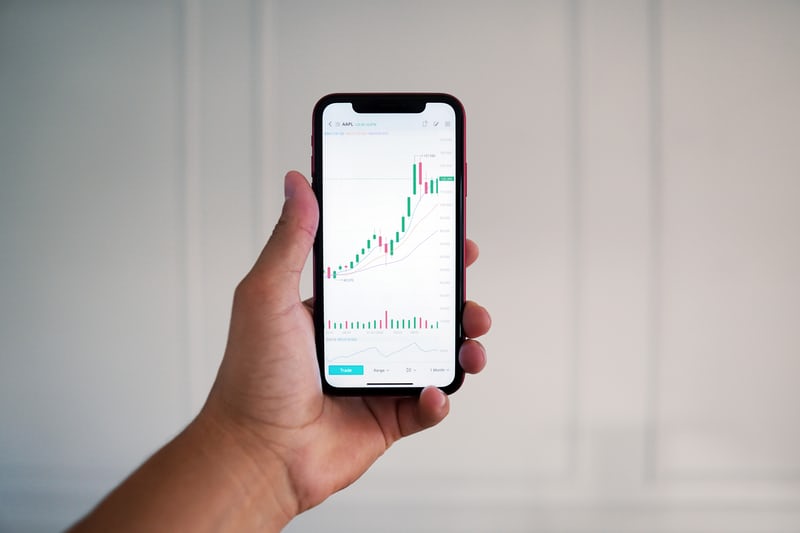When discussing investing, most people mix up speculator, trader and investor but understanding the differentiators is essential to avoiding risk, guaranteeing cash flow and preserving wealth.
With the influx of newly opened brokerage accounts and a rise in retail trading a.k.a gambling spurred by lockdowns and stimulus, most newcomers haven’t internalized one can’t invest without trading but one can trade without investing.
By definition, the word investor comes from the Latin “investire,” to dress in or clothe oneself, surround or envelop. You would never wear clothes without knowing what color they are or what material they’re made of. Likewise, you can’t invest in an asset you know nothing about.
If you buy a stock that purely goes up without caring about the underlying health of the business, the market cap, market share, the general valuation, any future prospects or at least think about them nor read through financial statements, then that is not called investing whatsoever. If the investment sounds cool, you want to be a part of the hype or it smells like quick profit, you are in the danger zone.
By The Numbers
Since active traders don’t ponder over valuation techniques or long-term horizon and instead focus solely on technical analysis charting price and volume allured by momentum and Reddit threads, let’s help some readers out by looking at the numbers before one or two get roasted.
Historically, active investing has dramatically underperformed passive investing simple due to too much action and guessing involved. On top of that, not only has it been less successful in generating returns, it also requires more work, headache, time wasted, money upfront, fees, timing, checking, pondering and pure hassle that rarely return a positive ROI.
While on the other hand, passive investing is an approach where you know going in you won’t beat the market but who needs to when you get your time back! Time = money after all! Rather your returns are mirrored by the underlying index such as the S&P 500 or Dow Jones as it tracks the consistency of the underlying asset classes and sectors of the market overtime. Passive investing is generally done through ETFs and index funds, a basket of diversified stocks. This requires less money upfront, lower costs and fees and no deceptive dangerous deadly debt hype that Robinhood is bound to pull you into.

Trader vs Speculator
Traders and speculators are best friends. They do everything together and aren’t sick of each other because they don’t know what they are doing. They haven’t dipped their toes into the investing world yet because they are traditional newcomers who are purely allured and sidetracked by the ubiquity of the media, hype around Bitcoin and do it for the kicks. Whatever that means.
You bought an asset, but you don’t know why, haven’t really understood it before but are convinced it’s a great one since you earned a nice spread on the last option you placed. The next time you play, you realize how much fun and cool ‘investing’ a.k.a gambling is and become overly optimistic believing your winnings are based on expertise and performance instead of on pure luck and random unexplainable timing. This inevitably leads most retail traders, 90%+ into hot water eventually adopting an obsessive addiction loosing money. It’s the same feeling you get playing the lottery. You didn’t win this time but the larger the payout, the greater chances you assume you have.
On the more realistic traditional side, investors are known as middle aged white guys or 90 year old Buffet who spends 6 hours a day reading financial statements and drinking his favorite company, Coke. Now you don’t have to go overboard nor be this old, unless of course you want to grow your holding company, Berkshire Hathaway, manage billions and be the most successful investor of all time. I’m only 20 and I prefer the boring, simple way towards investing as well. The process may be easier but that doesn’t mean the returns are slower.
Even if you did follow Buffet’s footsteps meticulously, the market wouldn’t pan out the same way as it did in the 60s because most of the time it isn’t in your control and you have to accept that. Although there isn’t a basic financial literacy test to qualify one as a true investor and begin trading, there really should be. Not only people would be more realistic about the trades they’re placing and grow their wealth faster, they would realize that investing is about knowing what you are getting into and realizing most of it isn’t in your control so don’t face it! Just like the Fed. If you aren’t on their side, you never want to fight the Fed!
One of the most valuable lessons I’ve ever learned about investing is that no matter how much expertise or past performance/experience you may have, it all goes out the window every time especially in this frothy, over-valued market where assets are trading few months down the line and no one can justify their market price.
Investing is simply trying to predict the future at the present with what you have.
Past performance typically won’t be an advantage no matter how proven your record may be. A company could go down any moment if the CEO is caught in a scandal or a security breach leaks millions of data files. That’s why staying diversified, having a realistic age based risk profile, never storing all your eggs in 1 basket and focusing on cheap yet valuable diversified index funds are the safest and still return terrifically. Save yourself some or rather, massive headache and don’t pool your life savings into Tesla for goodness sake. You better expect to get wiped out eventually. Just look at Bitcoin! It lost $7 trillion dollars worth of its value in May due to Musk’s tweet with Tesla not accepting it as a formal payment anymore due to heavy mining. The market is crazy and you aren’t smarter.
Investors can be anyone regardless of age although not always recommended. I’m proud to call myself one, at least I think I am because I focus on internal sources of return and internal rate of return. I prefer investing into securities (stocks) that have a higher internal rate of return (IRR) than its market price with low P/E ratios, are on the low end of their 52 week-high, possibly pay dividends, although they aren’t always great when they get too high and are value driven. Having a mix of defensible, growth and cyclical stocks in a basket through the Vanguard 500 Index fund keeps me sane. In terms of my conservative holdings, TIPS, commodities, gold and treasury bills are one of the safest investments as they are great inflation hedges.
You can learn more about them here.
In addition, alternative investments (negatively correlated to the market) are the best drivers to boost diversification and stay defensive during any downturn. From farmland to REITS, the more your money is spread out, the easier it’ll be to sleep well at night.
Internal sources of return include growth, earnings, income and value of assets while a trader or speculator tend to focus on external factors such as social media hype charting price and volume through technical analysis.
Buying and selling doesn’t make you an investor.
Knowing what you’re getting into and having a compelling reason for what you will use your money for and how it’s actually working for you down the line will certify you as a true investor.
Without identifying these points, there’s no point. It’s all in your favor.
The market is made for everyone but not suggested for everyone.
Invest and drive safely.

